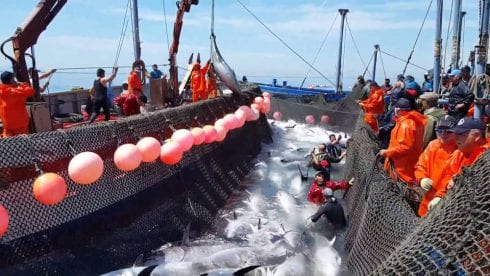THE Parque de los Alcornocales is Spain’s biggest Natural Park, and held in high esteem for its beauty, wildness and the variety of its flora and fauna. As testimony to the fecklessness of our own characters, we were both pretty fed up with it, the heavy mud on our boots, the complete absence of any paths.
“B-bugger the b-botany,” said Michael with feeling, “and as for the ornithology, they’re all j-just egrets to me. I know n-nothing about b-birds and couldn’t care less. I don’t want to see any fauna either – you can stuff your flora and f-fauna; what I like is art.”
This splenetic outburst was understandable I suppose, from an art historian. Fortunately Bob got cut off again and we continued beating our way sluggishly and morosely through this ill-favoured and inhospitable landscape. After what seemed like hours we came to a farm.
“Aah, g-good. H-human h-habitation. We can fill our waterbottles and ask the way.”
We jangled a bell that hung from a tree. A short man with a moustache and a cheesecutter cap apeared from somewhere and eyed us in an unfriendly fashion.
“H-hallo,” said Michael. “We’re lost and we’re trying to find our way through the canuto that goes round the Aljibe to Sauceda.”
The small man digested this information for a minute. Finally he said,
“Well you wanna be careful; they’re hunting today. There’s a lot of guns out on the hills. You want to cut along the track there and cut up the hill just before you get to the reservoir. Don’t go past the reservoir or you stand a good chance of getting shot.”
“W-wonderful,” said Michael. “Thankyou very much.”
“Go with God,” said our man and returned to whatever it was he had been doing before.
Michael looked at me meaningfully…
“G-God what an acc-ccursèd b-bloody place! If you don’t get lost forever in the trackless forest, you get g-gored to d-death by b-bulls – and if the b-bloody b-bulls don’t get you the goddam hunters’ll shoot you down! I tell you Chris, this place is a d-death trap!”
Bovine confrontation
We walked until our way was blocked by a group of cows
Perhaps he was right, but somebody had to take control of the situation and get us out of here. We struck onward, following the direction indicated by the man, Michael casting constant glances behind for fear of toros bravos. We ground along a boring track for a good hour and then came to a reservoir.
“We’re not supposed to go p-past the reservoir… that’s where we get shot,” suggested Michael.
“Yes, but there’s been nowhere to turn off until now. We’ll just go a little bit further and see if we can find a path uphill.”
We walked on until suddenly, rounding a tight corner, our way was blocked by a group of cows.
“Oh J-Jeezus Christ!,” cried Michael, “We’re d-dead!”
“They’re cows, Michael. They don’t mean us any harm…”
“Cows, b-bulls, it’s all the s-same to me! Look for Chrissake!… they’re looking at us!”
Michael was on the verge of hysteria now, and it was true; the cows were looking at us in a bovine sort of a way, and seemed reluctant to move out of our path.
“But that’s what cows do, Michael; they look at you in a bovine way. Look at those big limpid eyes…”
“They’re looking at us like that because THEY WANT TO KILL US!!”
“No they don’t; they’re not bulls; they’re cows, man.”
“H-how the h-hell d’you KNOW THAT??!! Look, they’ve got bloody great horns on them… AND HUGE B-
BALLS!!”
“Horns, Michael,” contrary to popular belief, are not a defining characteristic of maleness… and they’re not balls; they’re udders – like tits for goodness sake!”
God I was cool; it’s easy to be cool when confronted by cows.
We skirted round the edge of this group of fierce beasts and cut up through the scrub, a hideous slope covered in chest-high cistus, brambles and gorse.
“I reckon if we just keep on going up we can’t be far wrong,” I said confidently to reassure the trembling Michael. It was already abundantly clear that his navigational skills were even poorer than my own, so I thought it best, for the good of the expedition, to assume command. As a sop to Michael though, I let him carry the now useless map and the compass, which he consulted ineffectually from time to time.
We climbed up and up and on and on up. The breath burst from our lungs and our aching muscles begged us to stop, but still we climbed. After perhaps an hour of battling up through beastly scrub we found ourselves on the edge of a stteep muddy track. Not caring a fig where it led us, we followed it on up. Every now and then there were scatterings of fresh grain… I decided to keep quiet about this, as Michael, with his poor understanding of country ways, would be unlikely to recognise it as hunters’ bait. But after we passed the fifth or sixth heap, curiosity got the better of him.
“W-what d’you suppose this stuff is, Chris?”
“It’s just stuff,” I said reassuringly. It occurred to me that my friend was a man so urban that not only would he not know the difference between wheat and barley, but he wouldn’t know what either of them were.
He was silent for a bit. I heard his heavy mud-clogged boots, slogging on behind me. I could tell he was thinking.
“B-but then why is there s-stuff… and to my untutored eye it looks like fresh stuff… why are there regular heaps of fresh stuff?”
“That’s just the way it is in the country; there’s fresh stuff all over the place… it’s seeds.”
“You know w-what I think?”…
“No, tell me…”
“Well I think this is stuff left here to t-tell the h-hunters where to go, like H-Hansel and G-Gretel. B-but d-don’t worry; I’m resigned to d-death now. If we d-don’t d-die of exhaustion on this horrible mountain, we’ll probably b-be shot… and it’ll be a m-merciful release.”
Soon our bodies announced that they would go no further without some form of sustenance. We threw ourselves down on the track and unpacked the food. Soon the olives were caked in mud and there was mud on the bread. Tiny ants swarmed over the ham and sausage. We didn’t care though; we just slumped there and ate the ants and the mud along with the rest.
The top
We had climbed above the woods now and could see all the way down to the sea at Barbate. The sun glittered through the mist and the Mediterranean shone as a sheet of white at the foot of the deep forest.
“That’s where we really ought to have started, down on the beach at Boloña,” I suggested.
“What!? Walk through even more of this b-beastly f-forest? Not b-bloody likely!”
Amazing how quickly one recovers with a bit of rest and food. We packed away the ants and the olives and the wet yellow mud and turned once more to face the hellish track. We plodded on up in gloomy silence, wondering why we were putting ourselves through this ghastly ordeal. Soon we were enveloped in a cold mist, and a ragged wind buffeted us without mercy. Suddenly we found ourselves by a fence. On the other side there was heather and grass, so we clambered over and kept on upwards through the thickening mist on the other side. A sudden break in the mist showed us the sun shining on all the countryside far below us to the north.
And then we were on the very peak of Aljibe; there was nothing but down all around. Big rocks loomed through the mist.
“That’s it; this has got to be the top.”
“Y-yes, b-but we’re not supposed to go to the t-top. We should have taken the valley that goes round the side… according to Manolo.”
“So if we go down the east side, we ought to hit that valley; then we just follow it down to Sauceda.”
Canuto
We headed downhill into the mist with as light a step as our mud-laden boots would allow us. A path appeared, and a sign – La Ermita.
“That’s got to be it,” I cried.
“G-got to b-be what?”
“Where we’re going, Sauceda…”
“B-but it says Ermita, not ‘Sauceda’…”
“Yes, but it’s going the right way…” and I marched off down the zig-zag path.
Michael looked unconvinced. He consulted the compass.
“It’s the wrong direction… it g-goes southeast…”
“Yes but it’s a zigzag path.”
Michael followed me down a bit, then consulted the compass again.
“You’re r-right, it’s g-going north now. No… wait a m-minute… now it’s g-going west. We’re wrong again…”
Just a little exasperated I strode on down. From some way behind I could hear Michael calling… “It’s OK, you’re right… n-no, wait, it’s the wrong w-way…”
We had found the canuto. A canuto is one of the lush narrow valleys that typify the Parque de los Alcornocales, and our valley was leading us down off the mountain on its north side. Soon it became what is known as a cloud valley, lush and dripping with mists. The thick vegetation was hung with lichens and mosses. The sun shone dappled through the thick canopy of trees. A deer sprang gracefully away from us and everywhere were the rootings of wild boar, snuffling for roots in the damp peaty soil. Our hearts lifted as we slithered steeply down into the beauty of the cloud valley. The trees thinned and the valley became a chestnut forest with a clear stream meandering in its deep cleft.
Sauceda, a village hidden deep in the woods became a refuge for Republicans
We tripped on seemingly interminably down the valley, crossing and recrossing the stream. In the distance we could hear the fluty and improbable babble of children’s voices… and then I remembered – Sauceda. I had recently read a book to Chloë, Toro Toro by Michael Morpurgo, which described the fate of the village of Sauceda.
In 1936, the first year of the Civil War, Sauceda, a village hidden deep in the wods, became a refuge for Republicans. They set up a commune, a co-operative village run along Communist lines, with its forge, its bakery, all self-sufficient. At dawn one day, Franco’s airforce bombed the village to destruction, killing hundreds of men, women and children. The only building to survive was the Ermita, the little stone church.
This was it; we were coming to Sauceda, and the almost unearthly cries of the children, filtering up through the woods, reminded me of the story. A wooden bridge forded the stream, there was a smell of woodsmoke, and a clearing appeared amongst the trees. Sauceda was now a summer colony for children, and there they all were, about a hundred of them, all horsing around in the low evening sunshine.
Somehow it was Michael and I who seemed to be the ghosts, as we manifested ourselves, strange and sudden from the woods. Nobody, not the children nor the adults, took the slightest bit of notice of us. It was as if we were not really there.









Nice one Chris. “Not lost: but gone finding the way the way”.